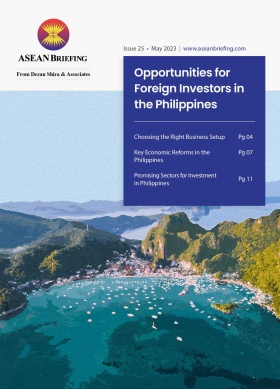Indonesia Introduces De-Dollarization Task Force
Indonesia has introduced a de-dollarization task force to help promote the use of its Rupiah in bilateral transactions and diversify its risk from the greenback.
Indonesia and its central (Bank Indonesia) have introduced a task force to promote the use of the Rupiah in bilateral transactions. The country aims to reduce its reliance on the greenback and diversify payments on the international stage through local currency transactions (LCT). In addition to the Bank Indonesia, Indonesia’s Financial Services Authority, the Deposit Insurance Corporation, and several ministries will also be part of the task force.
Indonesia embracing de-dollarization
Indonesia already undertakes local currency transactions with China, Japan, Malaysia, and Thailand. It is hoping to launch a cross-border payment system to encourage LCS transactions with Singapore by the end of 2023.
For Indonesia, the move is in line with the initiative set out to reduce Southeast Asian reliance on the U.S. dollar for international trade. Indonesia, along with its ASEAN partners, signed an agreement during the 42nd ASEAN Summit to push for better regional payment connectivity as well as the use of local currency transactions. Through this initiative, ASEAN member countries hope to increase trade within the bloc, improve regional value chains, and strengthen financial resilience.
China has been getting rid of its U.S. Treasury Bonds and now holds US$870 billion in US debt—the lowest since 2010. Iraq has now allowed trade with China to be settled with the renminbi yuan, and China and Saudi Arabia are considering pricing some oil sales in yuan. The central banks of Indonesia and South Korea have agreed to expand the use of each other’s local currency for bilateral transactions, in addition to India and the UAE working out a deal to trade in their currencies.Further, the interest hikes imposed by the Federal Reserve to fight its own domestic inflation have forced central banks worldwide to raise their own interest rates, thus making it harder for businesses and consumers to borrow capital.
However, there are still no real alternatives to the U.S. dollar. It is still the dominant currency among global forex reserves, accounting for some 58 percent of the reserves in the fourth quarter of 2022.
ASEAN pushing through de-dollarization through a new payment connectivity system
An initiative from ASEAN to improve its regional payment landscape and encourage local currency transactions has been the launch of the universal quick response (QR) code.
The central banks of the Philippines, Indonesia, Malaysia, Singapore, and Thailand have employed contactless QR code payment systems for goods and services between the countries thus encouraging greater financial inclusion for consumers and MSMEs in the region.
This also means a transaction in Thailand using an Indonesian app will be paid through a direct exchange between the rupiah and the baht—bypassing the U.S. dollar as an intermediary. Once the connection linkages have been completed, the central banks will seek to connect with other clusters around the world.
Importantly, the initiative will encourage greater financial inclusion for the region’s unbanked and underbanked population. It is estimated that 50 percent of Southeast Asia’s population remains unbanked, meaning they do not have access to the most basic banking services. Further, for the region’s MSMEs—which account for 99 percent of all businesses—the use of QR payment systems will enable them to seize more market opportunities, in addition to investments to help them climb up the value chain.
ASEAN is wary of the impact of sanctions
Southeast Asian countries are increasingly wary of the role the U.S. dollar plays in sanctions brought on by the U.S. The U.S. along with the European Union froze some US$300 billion of Russia’s foreign reserves and cut its major banks from accessing the SWIFT network in a bid to cripple the Russian economy following the Ukraine conflict. As such, these sanctions have forced ASEAN member countries to mitigate their risks and engage in diversifying their reserve currencies. Further, they are also wary that the U.S. could use the power of its currency to target them in the future.
Exploring Indonesia’s Top Investment Sectors: Midyear Recap and FDI Exploration Guide
September 25, 2023 | 3:00 PM Jakarta / 4:00 PM China / 10:00 CET
In this webinar, our business advisory team will delve into Indonesia’s 2023 investment trends and will discuss the key considerations for investing in the country’s top investment sectors, the current situation on the business environment in the top investment locations, and touch upon the pathways available for foreign businesses to tap into these opportunities.
About Us
ASEAN Briefing is produced by Dezan Shira & Associates. The firm assists foreign investors throughout Asia and maintains offices throughout ASEAN, including in Singapore, Hanoi, Ho Chi Minh City, and Da Nang in Vietnam, in addition to Jakarta, in Indonesia. We also have partner firms in Malaysia, the Philippines, and Thailand as well as our practices in China and India. Please contact us at asean@dezshira.com or visit our website at www.dezshira.com.
- Previous Article Audit and Compliance in Vietnam: A Guide for Foreign Investors
- Next Article Cambodia Opens Foreign Employee Quota Application for 2024








